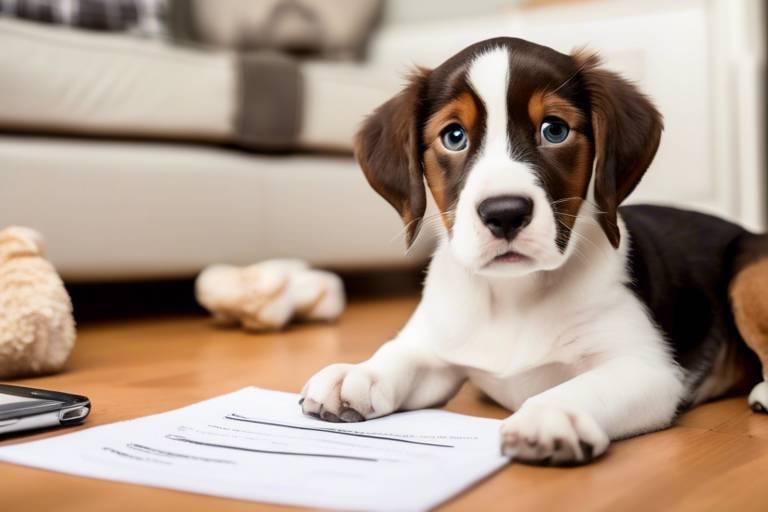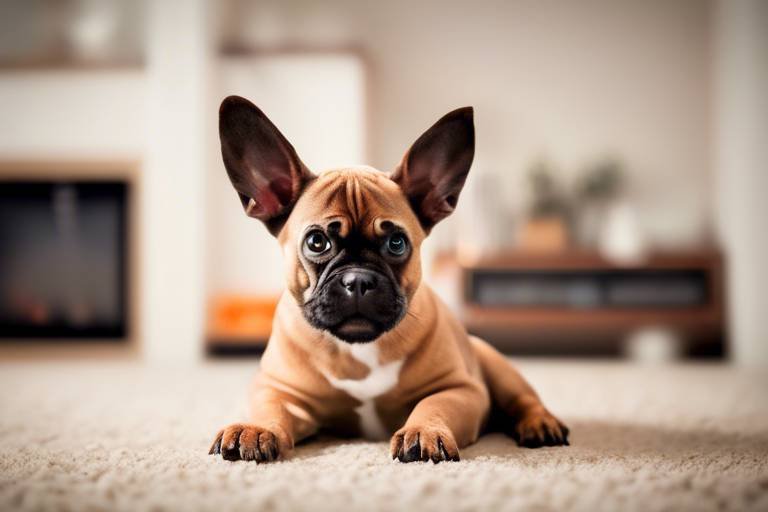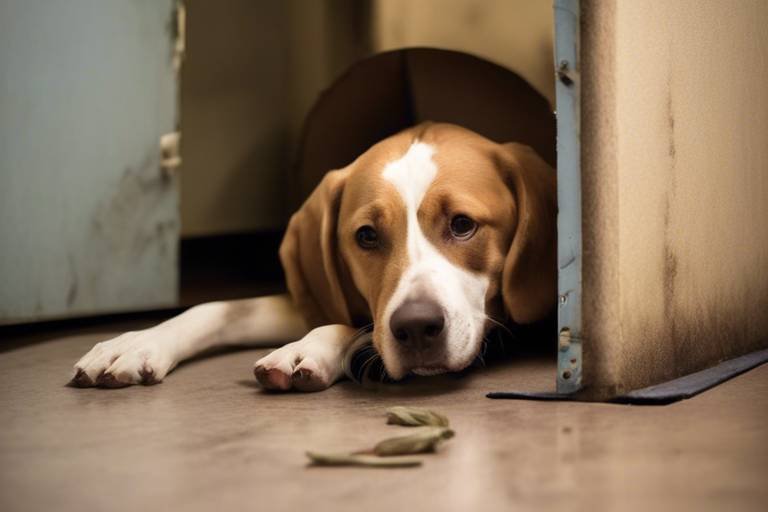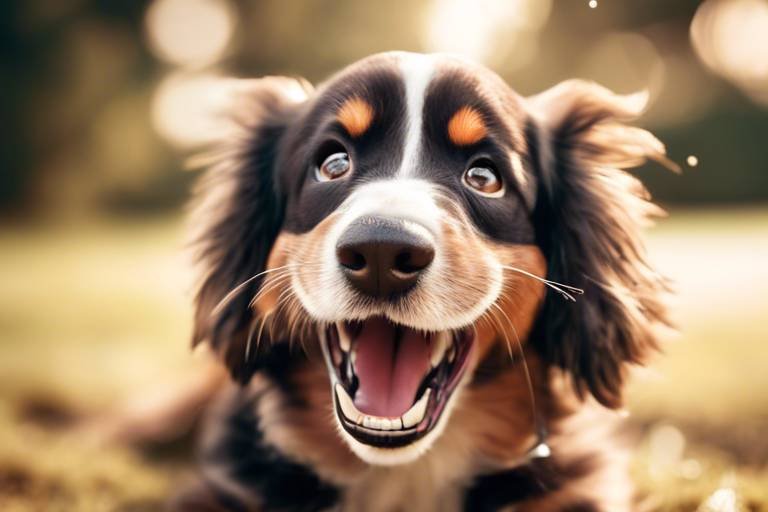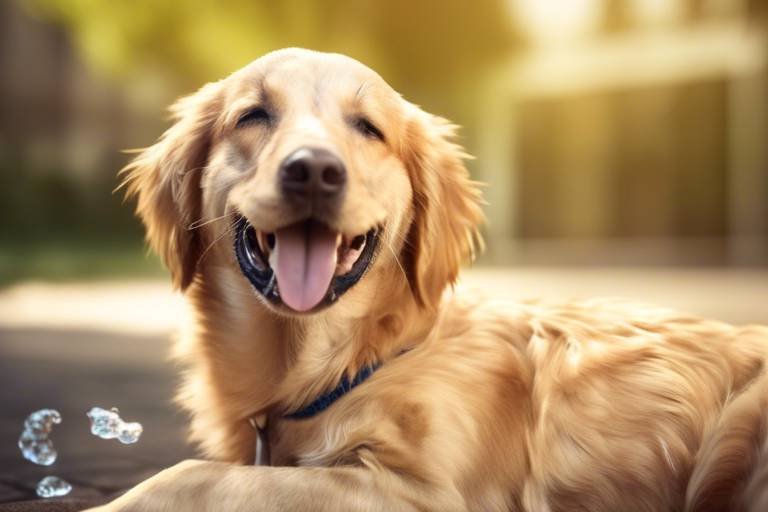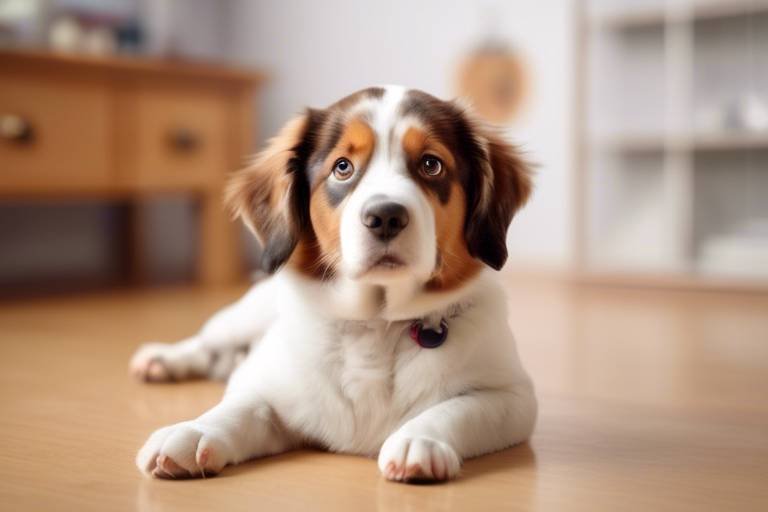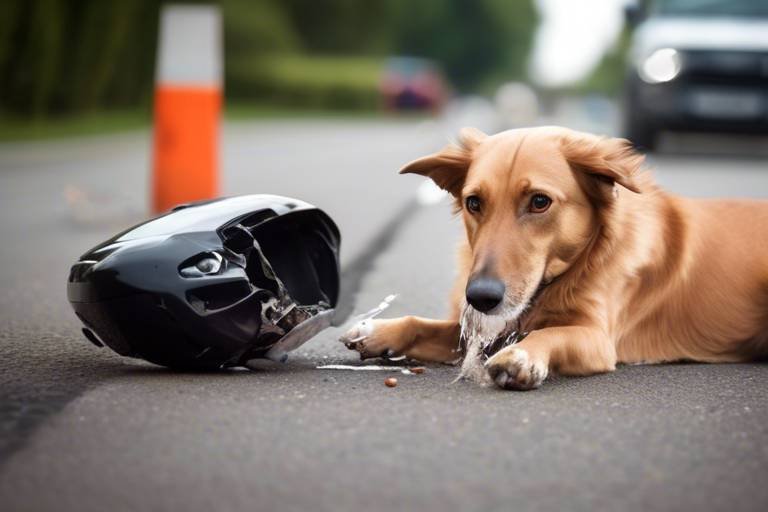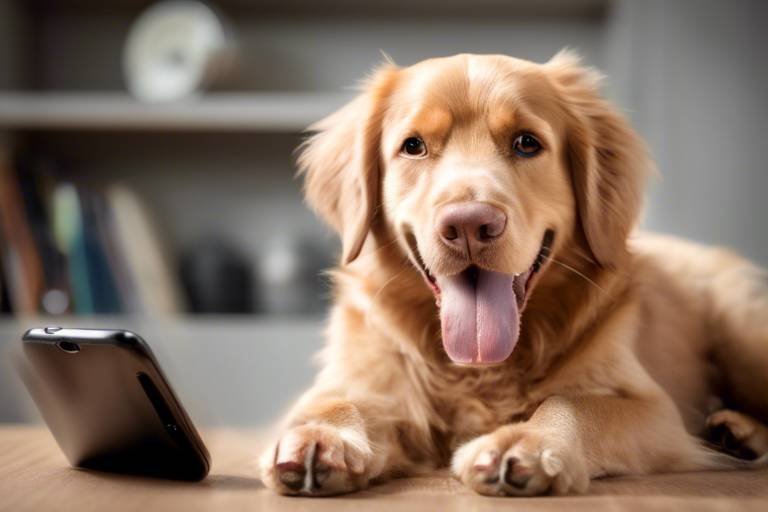How to Safely Use Essential Oils Around Pets
Essential oils have gained immense popularity in recent years, not just for their delightful scents but also for their potential health benefits. However, if you're a pet owner, you might be wondering how to enjoy these aromatic wonders without putting your furry friends at risk. This article explores the safe usage of essential oils in homes with pets, highlighting potential risks, safe practices, and recommendations for pet-friendly oils to ensure the well-being of your furry companions.
So, what exactly are essential oils? These concentrated plant extracts are derived through various methods, including steam distillation and cold pressing. They capture the natural fragrance and properties of plants, making them popular in aromatherapy, cleaning products, and even personal care items. While these oils can create a soothing atmosphere for humans, it's essential to understand that their potency can pose risks to pets. Just like a strong perfume might overwhelm your senses, the same can happen to your pets, especially when they have a heightened sense of smell.
Not all essential oils are safe for our beloved pets. Some can be downright toxic, leading to severe health issues. Pets, particularly cats and dogs, can experience various reactions depending on the oil's concentration and their individual sensitivities. For instance, oils that are safe for humans might cause distress or poisoning in pets. Symptoms of essential oil poisoning can range from mild to severe, including drooling, vomiting, difficulty breathing, and even seizures. It’s crucial to be aware of these risks to protect your furry family members.
There are several essential oils that are particularly harmful to pets. Here’s a brief overview of some of the most common toxic oils:
- Tea Tree Oil: Highly toxic to both dogs and cats, even in small amounts.
- Lavender Oil: Can cause nausea and vomiting in pets.
- Pine Oil: Known to irritate the skin and respiratory tract.
- Citrus Oils: Can lead to gastrointestinal upset and central nervous system depression.
Even a few drops of these oils can lead to serious health issues, so it's best to avoid them entirely around pets.
Recognizing the signs of essential oil toxicity in pets is crucial for their safety. Here are some symptoms to watch for:
- Excessive drooling
- Vomiting or diarrhea
- Tremors or seizures
- Difficulty breathing
If you notice any of these symptoms, it's essential to seek veterinary care immediately. Remember, quick action can make a significant difference in your pet's recovery.
Not all essential oils are harmful. In fact, some can be used safely around pets. For example, oils like Frankincense, Ginger, and Cardamom are generally considered pet-friendly when used correctly. These oils can provide a pleasant aroma without compromising your pet's health. However, always dilute essential oils and introduce them gradually to ensure your pet doesn't have an adverse reaction.
When it comes to using essential oils around pets, how you apply them matters. Here are some best practices:
- Dilution: Always dilute essential oils before use. A good rule of thumb is to mix one drop of essential oil with at least 50 drops of a carrier oil.
- Diffusing: If you choose to diffuse oils, ensure the area is well-ventilated and that your pets can leave if they feel uncomfortable.
- Timing: Avoid using essential oils during times when your pets are stressed, such as during thunderstorms or fireworks.
By following these guidelines, you can create a safer environment for your pets while still enjoying the benefits of essential oils.
Before diving into the world of essential oils, it's crucial to consult with your veterinarian. They can provide tailored advice based on your pet's specific needs and health conditions. Every pet is unique, and what works for one may not work for another. Your vet can help you identify any potential risks and suggest pet-safe options that align with your lifestyle.
When considering essential oils, remember that factors like age, breed, and existing health conditions can significantly influence safety. For instance, older pets or those with respiratory issues may be more sensitive to certain scents. Always take your pet's individual characteristics into account when deciding on essential oil use.
If you’re still concerned about using essential oils, there are plenty of alternatives to create a pleasant home environment. Natural air fresheners, such as baking soda or vinegar, can effectively neutralize odors without posing risks to your pets. Additionally, consider using potpourri made from pet-safe herbs or investing in a good-quality air purifier to keep the air fresh and clean.
Q: Can I use essential oils on my pet directly?
A: It's generally not recommended to apply essential oils directly to your pet's skin without veterinary guidance, as many oils can cause irritation or toxicity.
Q: What should I do if my pet ingests essential oils?
A: If you suspect your pet has ingested essential oils, contact your veterinarian or an emergency animal clinic immediately.
Q: Are there any essential oils safe for cats?
A: While some oils like Frankincense and Ginger are considered safe, it's best to consult your vet before using any essential oils around cats, as they are more sensitive than dogs.

Understanding Essential Oils
Essential oils are concentrated extracts derived from various parts of plants, including leaves, flowers, stems, and roots. These oils capture the plant's natural fragrance and beneficial properties, making them popular in aromatherapy and natural remedies. The extraction methods vary, with the most common being steam distillation and cold pressing. Steam distillation involves passing steam through plant material, which vaporizes the volatile compounds, and then cooling the vapor to collect the oil. Cold pressing, on the other hand, mechanically extracts oils from citrus peels, preserving their vibrant scents and therapeutic benefits.
People often use essential oils for a multitude of purposes, ranging from enhancing mood and relaxation to cleaning and disinfecting their homes. Aromatherapy, in particular, utilizes essential oils to promote physical and emotional well-being. For example, lavender oil is often used to reduce anxiety and improve sleep quality, while eucalyptus oil can help clear respiratory pathways. However, while these oils can be beneficial for humans, their effects on pets can be quite different and potentially dangerous.
When considering using essential oils in a pet-friendly environment, it’s essential to understand how these oils interact with various animals. For instance, cats and dogs metabolize substances differently than humans do. Their bodies may react adversely to certain compounds found in essential oils, leading to health risks. Therefore, it’s crucial to approach the use of essential oils with caution, ensuring that you prioritize your furry friends' safety.
In addition to knowing the extraction methods and uses of essential oils, pet owners should also be aware of the specific oils that are safe or harmful to their pets. This knowledge forms the foundation for responsible usage, allowing you to enjoy the benefits of aromatherapy while ensuring the well-being of your beloved companions. Remember, just because an oil is natural doesn’t mean it’s safe for your pets!
To help you get started, here’s a brief overview of essential oils:
| Essential Oil | Common Uses | Safety for Pets |
|---|---|---|
| Lavender | Relaxation, sleep aid | Generally safe in moderation |
| Peppermint | Energy boost, digestion | Can be harmful to cats |
| Eucalyptus | Respiratory health | Potentially toxic to pets |
| Tea Tree | Antimicrobial | Highly toxic to pets |
Understanding essential oils is the first step towards creating a harmonious home environment where both you and your pets can thrive. Always remember to do your research and consult with professionals when in doubt!
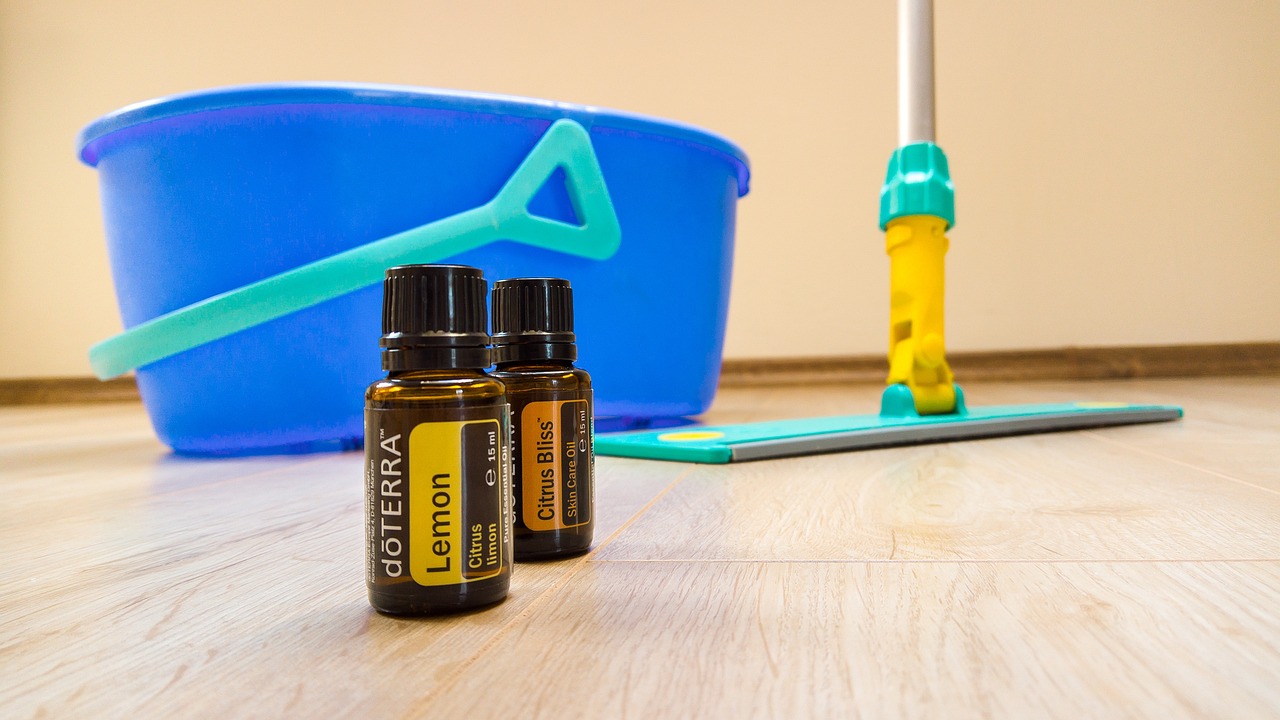
Potential Risks for Pets
When it comes to our furry friends, their safety is always a top priority. Essential oils, while beneficial for humans in many ways, can pose significant risks to pets. It's essential to understand that pets metabolize substances differently than we do, which can lead to unexpected and sometimes dangerous reactions. For instance, what might be a soothing scent for you could be a toxic threat to your beloved companion.
One of the primary concerns is the toxicity levels associated with certain essential oils. Pets, particularly cats and dogs, can exhibit symptoms of poisoning even after exposure to small amounts. This is why it's vital to be aware of which oils are considered harmful. For example, oils like tea tree, eucalyptus, and lavender can be particularly dangerous. Even if you think you’re using them safely, the risk is always there.
It’s not just the oils themselves that can be harmful; the way they are used can also lead to issues. For instance, if you use a diffuser, the concentrated vapor can linger in the air and be inhaled by your pet. Additionally, if oils are applied topically, pets may lick the area, leading to ingestion. This is especially concerning for curious puppies and kittens who tend to explore their world with their mouths.
Here are some common symptoms of essential oil toxicity to watch out for:
- Vomiting
- Diarrhea
- Excessive drooling
- Difficulty breathing
- Weakness or lethargy
- Unusual behavior, such as agitation or depression
If you notice any of these symptoms, it’s crucial to seek veterinary care immediately. Being proactive can make a significant difference in your pet's health. Understanding the individual sensitivities of different animals is also vital. For example, cats are generally more susceptible to the dangers of essential oils than dogs due to their unique liver metabolism.
Ultimately, while essential oils can enhance our living spaces and provide therapeutic benefits, they come with potential risks that should never be taken lightly. Always err on the side of caution and prioritize the health and safety of your pets when considering using essential oils in your home.
Q: Are all essential oils toxic to pets?
A: No, not all essential oils are toxic. Some oils can be used safely around pets, but it’s important to research each specific oil and consult with a veterinarian.
Q: How can I tell if my pet has been exposed to a toxic oil?
A: Look for symptoms such as vomiting, diarrhea, excessive drooling, or changes in behavior. If you notice any of these, contact your veterinarian immediately.
Q: What should I do if my pet ingests essential oil?
A: Seek veterinary care immediately. Do not wait for symptoms to appear, as prompt treatment can be crucial.
Q: Can I use essential oils in my home if I have pets?
A: Yes, but you must choose pet-safe oils and use them cautiously. Always ensure proper ventilation and consider your pets’ individual sensitivities.
Common Toxic Oils
When it comes to essential oils, not all are created equal, especially when you have furry friends at home. Some oils can be downright dangerous for pets, leading to severe health issues even with minimal exposure. It's crucial to recognize which oils pose a risk and understand why they are harmful. For instance, oils such as tea tree oil, peppermint oil, and citrus oils can be highly toxic to dogs and cats alike. These oils contain compounds that can disrupt a pet's nervous system or cause gastrointestinal distress.
Let's take a closer look at some of the most common toxic oils:
| Essential Oil | Risk Level | Symptoms of Toxicity |
|---|---|---|
| Tea Tree Oil | High | Vomiting, lethargy, tremors |
| Peppermint Oil | Moderate | Vomiting, diarrhea, difficulty breathing |
| Citrus Oils (Lemon, Lime, Orange) | High | Drooling, vomiting, diarrhea |
| Lavender Oil | Low to Moderate | Vomiting, lethargy, incoordination |
| Eucalyptus Oil | High | Vomiting, diarrhea, weakness |
Even oils that are considered "safe" for humans can be toxic to pets, so it’s essential to be cautious. The risk is particularly pronounced in smaller animals, such as cats and certain dog breeds, who may be more sensitive to these substances. For example, cats lack the liver enzymes necessary to metabolize certain compounds found in essential oils, making them particularly vulnerable to toxicity. This means that even a drop of a toxic oil can lead to serious health complications.
Additionally, the method of application matters. Diffusing oils in the air can expose pets to concentrated amounts, while topical application can lead to direct skin absorption, increasing the risk of adverse reactions. Therefore, understanding which oils to avoid is just one part of the equation; knowing how and when to use them is equally important.
In summary, keeping your pets safe means steering clear of these common toxic oils. Always consult with a veterinarian if you’re uncertain about the use of any essential oil in your home. Remember, when in doubt, it's better to be safe than sorry!
Signs of Toxicity
When it comes to our furry friends, being vigilant about their health is paramount, especially when essential oils are involved. Recognizing the signs of toxicity can be a lifesaver for your pet. Essential oils, while beneficial for humans, can cause adverse reactions in pets, and understanding these signs is crucial. If you notice any unusual behavior in your pet after using essential oils, it’s essential to act quickly.
Common symptoms of essential oil toxicity in pets include:
- Vomiting: If your pet has ingested or inhaled a toxic oil, vomiting may be one of the first signs you observe.
- Excessive Drooling: An increase in saliva production can indicate discomfort or distress.
- Difficulty Breathing: Respiratory issues can arise, and your pet may struggle to breathe or exhibit coughing.
- Weakness or Lethargy: If your pet seems unusually tired or weak, this could be a sign of a serious reaction.
- Seizures: In severe cases, essential oil toxicity can lead to seizures, which require immediate veterinary attention.
Additionally, some pets may display unusual behaviors, such as agitation, restlessness, or even a lack of appetite. It's important to remember that each pet may react differently based on their size, breed, and overall health. For instance, smaller pets may be more susceptible to the effects of essential oils than larger ones. If you notice any of these symptoms, don’t hesitate to consult your veterinarian.
Being proactive is key. Keep an eye on your pet after introducing any new essential oil into your home. If you suspect that your pet has been exposed to a toxic oil, gather as much information as possible about the specific oil and contact your veterinarian immediately. Quick action can make all the difference in ensuring your pet's safety and well-being.
Q: Can I use essential oils in my diffuser if I have pets?
A: It depends on the type of essential oils you are using. Some oils are safe for pets, while others can be harmful. Always research the oils and consult with your veterinarian before use.
Q: What should I do if my pet shows signs of essential oil toxicity?
A: If you suspect your pet has been exposed to toxic essential oils, contact your veterinarian immediately. Provide them with details about the oil and the symptoms your pet is exhibiting.
Q: Are there any essential oils that are safe for pets?
A: Yes, some essential oils are considered safe for pets, such as lavender and chamomile. However, it's essential to use them in moderation and always consult your veterinarian first.
Q: Can I use essential oils on my pet's skin?
A: It's generally not recommended to apply essential oils directly to your pet's skin without veterinary guidance, as many oils can be irritating or toxic.
Q: How can I create a pleasant environment without using essential oils?
A: There are many alternatives to essential oils, such as using natural air fresheners, baking soda, or vinegar solutions to keep your home smelling fresh and clean.
Safe Essential Oils
When it comes to using essential oils in a home with pets, the good news is that not all essential oils are harmful. In fact, there are several pet-safe essential oils that can enhance your living space without putting your furry friends at risk. It's crucial to choose wisely, as some oils can be toxic even in small amounts. So, which oils can you safely use around your pets? Let's dive into some of the most popular pet-friendly essential oils.
One of the most widely recommended essential oils for pet owners is lavender oil. Not only does it have a calming effect, but it can also help reduce anxiety in both humans and pets. Just imagine your anxious dog relaxing as the soothing scent of lavender wafts through the air—sounds heavenly, right? However, always remember to dilute the oil properly before use. A good rule of thumb is to mix one drop of essential oil with at least a teaspoon of a carrier oil, like coconut or olive oil, to ensure it’s safe for your pet’s sensitive system.
Another safe option is chamomile oil, known for its anti-inflammatory properties. It can be particularly beneficial for pets with skin irritations or allergies. By mixing chamomile oil with a carrier oil, you can create a gentle topical treatment for your pet's skin. Just be sure to conduct a patch test first to ensure your pet doesn't have any adverse reactions.
Additionally, frankincense oil is another essential oil that is generally considered safe for pets. It can promote a sense of peace and well-being, making it a great choice for diffusing in your home. However, like with any essential oil, moderation is key. You should never apply undiluted essential oils directly on your pet's skin or allow them to ingest any essential oils without consulting a veterinarian first.
For those who prefer a more detailed overview, here’s a quick comparison table of some safe essential oils for pets:
| Essential Oil | Benefits | Usage Tips |
|---|---|---|
| Lavender | Calming, anxiety relief | Dilute before use; monitor pet's reaction |
| Chamomile | Anti-inflammatory, skin soothing | Mix with carrier oil for topical use |
| Frankincense | Promotes peace and well-being | Use in diffuser; avoid direct skin contact |
It's important to note that even safe essential oils should be used with caution. Always observe your pet's behavior after introducing a new scent into your home. If you notice any signs of discomfort, such as excessive drooling, vomiting, or lethargy, it’s essential to remove the oil immediately and consult your veterinarian. Remember, every pet is different, and what works for one may not work for another.
Ultimately, the key to safely using essential oils around pets is to stay informed and cautious. By opting for pet-safe oils and using them responsibly, you can create a soothing environment for both you and your beloved companions.
- Can I use essential oils on my pet directly? No, you should always dilute essential oils with a carrier oil before applying them to your pet's skin.
- What should I do if my pet shows signs of toxicity? If you suspect your pet has been exposed to a toxic essential oil, contact your veterinarian immediately for guidance.
- Are there any essential oils I should avoid completely? Yes, certain oils like tea tree, eucalyptus, and citrus oils can be toxic to pets and should be avoided.
- How can I safely diffuse essential oils around my pets? Use a diffuser in a well-ventilated area and ensure your pet has the option to leave the space if they feel uncomfortable.
Safe Application Methods
Using essential oils around pets can be a delicate balancing act. The key is to ensure that your furry friends remain safe while you enjoy the benefits of aromatherapy. One of the safest ways to apply essential oils is through **dilution**. By mixing essential oils with a carrier oil, such as coconut or jojoba oil, you significantly reduce the concentration of the essential oil, making it less likely to cause any adverse reactions in your pets. A common dilution ratio is 1 drop of essential oil to 1 tablespoon of carrier oil. This method not only minimizes risk but also allows you to enjoy the aromatic properties without overwhelming your pet's sensitive sense of smell.
Another safe application method is **diffusing** essential oils in a well-ventilated area. When using a diffuser, it’s crucial to choose a space that your pets can easily leave if they feel uncomfortable. Keep the diffuser away from your pets and ensure that they have access to fresh air. It's also wise to limit the duration of diffusion to about 30 minutes at a time. This way, you can enjoy the soothing scents without saturating the environment. Always observe your pets during and after diffusion; if they show any signs of distress, discontinue use immediately.
Timing and environment play a significant role in the safe application of essential oils. For instance, consider using essential oils when your pets are out for a walk or during their playtime. This ensures that they are not in the immediate vicinity of the oils while they are being applied or diffused. Additionally, avoid using essential oils in small, enclosed spaces where the scent can become too concentrated. Instead, opt for open areas where air can circulate freely, allowing your pets to feel comfortable and safe.
Finally, always remember to **research** the specific essential oils you plan to use. Some oils are known to be pet-friendly, while others can be harmful even in small amounts. If you're unsure, consult with your veterinarian for personalized advice tailored to your pet's needs. It's better to be safe than sorry when it comes to the health and well-being of your beloved companions.
- Can I use essential oils on my pet directly? No, it is generally not recommended to apply essential oils directly to your pet's skin unless advised by a veterinarian.
- What should I do if my pet shows signs of essential oil toxicity? If you suspect your pet has been affected by essential oils, contact your veterinarian immediately.
- Are there any essential oils that are safe for cats? Yes, some oils like lavender and chamomile are generally considered safe for cats, but always check with your vet first.
- How can I tell if my pet is allergic to a specific essential oil? Watch for symptoms such as sneezing, coughing, or skin irritation. If these occur, discontinue use and consult your vet.
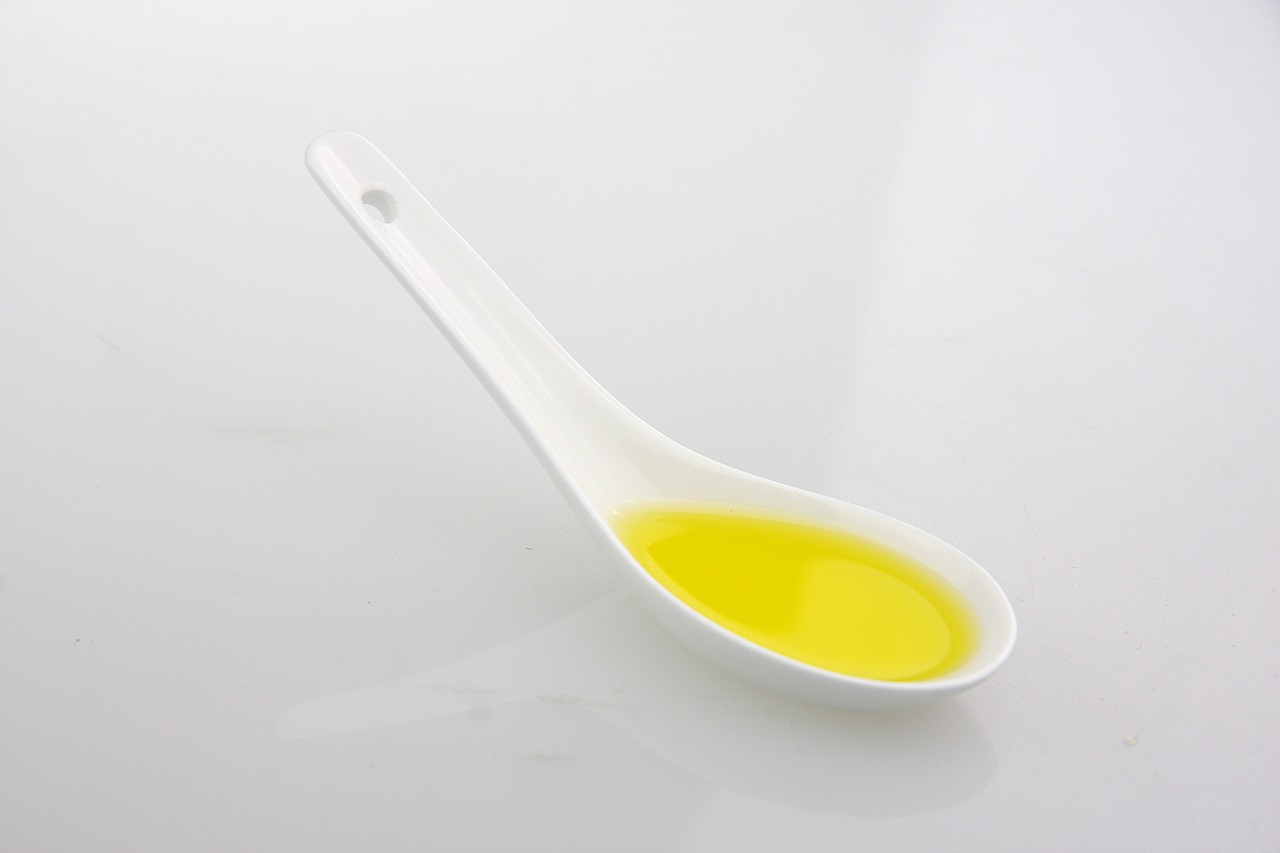
Consulting Your Veterinarian
When it comes to using essential oils around your beloved pets, one of the most critical steps you can take is to consult your veterinarian. Why? Because every pet is unique, and what may be safe for one animal could be harmful to another. Your vet can provide you with tailored advice based on your pet's specific health needs, breed, and age. It’s like having a personalized roadmap to ensure that your furry friend stays safe while you enjoy the aromatic benefits of essential oils.
Before you start diffusing your favorite scents, consider this: essential oils can interact with medications your pet may be taking or exacerbate existing health conditions. For example, if your dog is on medication for anxiety, certain oils could interfere with their treatment. This is why a thorough discussion with your veterinarian is essential. They can help you navigate the dos and don'ts of essential oil use and suggest alternatives that are safe for your pet.
Moreover, if you’re unsure which essential oils are safe, your vet can provide a list of pet-friendly options. Some oils may be beneficial for calming or soothing effects, while others might be downright dangerous. This knowledge can empower you to make informed choices that enhance your home environment without compromising your pet's health.
It's also worth noting that some pets may have heightened sensitivities, especially those with pre-existing health conditions or those who are very young or elderly. By discussing your pet's individual health profile with your veterinarian, you can better understand how essential oils might affect them. This is akin to having a tailored suit; it fits perfectly and meets your specific needs.
In addition to consulting your veterinarian, keep an eye on your pet's behavior after introducing any new essential oil into your home. If you notice any unusual signs, such as lethargy, vomiting, or changes in appetite, it’s vital to reach out to your vet immediately. They can help determine if the symptoms are related to the essential oils or if there’s another underlying issue.
In summary, consulting your veterinarian is not just a precaution; it's a vital step in ensuring the safety and well-being of your pet when using essential oils. So, before you light that diffuser or apply that oil, take the time to have a chat with your vet. Your pet will thank you for it!
- Can I use essential oils on my pet directly? - It's generally not recommended to apply essential oils directly to your pet without veterinary guidance, as many oils can be toxic.
- What should I do if my pet shows signs of toxicity? - Seek immediate veterinary care if you suspect your pet has been poisoned by essential oils.
- Are there any essential oils that are safe for cats? - Yes, some oils like lavender and chamomile may be safe in small amounts, but always consult with your vet first.
- How can I make sure my home smells good without using essential oils? - Consider using natural air fresheners like baking soda, vinegar, or even fresh flowers for a pleasant aroma.
Individual Pet Considerations
When it comes to using essential oils around your furry friends, it's crucial to remember that every pet is unique. Just like humans, pets have different sensitivities, health conditions, and personalities that can influence how they react to essential oils. For instance, a young, healthy dog may tolerate certain oils better than an older cat with pre-existing health issues. This variability means that what works for one pet might be harmful to another.
Consider the age of your pet. Puppies and kittens are still developing their immune systems, making them more susceptible to the adverse effects of essential oils. On the other hand, senior pets may have compromised health due to age-related conditions, which can heighten their sensitivity. It's important to tailor your approach based on these factors.
Additionally, breed plays a significant role in how pets react to essential oils. For example, some breeds are more prone to skin sensitivities or respiratory issues, making them more vulnerable to the effects of certain oils. For instance, Bulldogs and Boxers may have respiratory challenges, so using diffused oils in a well-ventilated area is crucial.
Health conditions should also be a major consideration. If your pet has a history of asthma, seizures, or other chronic illnesses, you must be particularly cautious. Always consult your veterinarian before introducing essential oils into your home. They can provide tailored advice based on your pet's medical history and current health status.
Moreover, it's essential to monitor your pet's behavior closely after introducing any new essential oil. Look for signs of discomfort or distress, such as excessive scratching, sneezing, or lethargy. If you notice any unusual behavior, it's best to discontinue use immediately and consult your veterinarian.
In conclusion, understanding the individual needs of your pet is paramount when considering essential oils. By paying attention to factors such as age, breed, and health conditions, you can ensure a safe and enjoyable experience for both you and your beloved companion.
- Can I use essential oils on my pet directly? No, it's generally not safe to apply essential oils directly on pets without veterinary guidance.
- What should I do if my pet ingests essential oils? Contact your veterinarian immediately or call an animal poison control hotline.
- Are there any essential oils that are completely safe for all pets? While some oils are considered safer, it's vital to consult with your vet as individual pets may react differently.
- How can I tell if my pet is having a reaction to essential oils? Watch for symptoms like vomiting, diarrhea, excessive drooling, or difficulty breathing.
- Can I use essential oils for cleaning around pets? It’s best to avoid using essential oils in cleaning products if you have pets, as they can be sensitive to these substances.
Alternatives to Essential Oils
While essential oils can offer a delightful aroma and various benefits for humans, they can pose risks to our beloved pets. Thankfully, there are numerous alternatives that allow you to maintain a pleasant atmosphere in your home without compromising your furry friends' safety. One of the most effective ways to achieve this is by utilizing natural air fresheners that are pet-friendly.
For instance, you can create your own air fresheners using simple ingredients like baking soda, vinegar, and citrus fruits. These ingredients not only help to neutralize odors but also infuse your home with a fresh scent. Just mix a few tablespoons of baking soda with water and a splash of vinegar in a spray bottle. Add some slices of lemon or orange, shake it up, and you’ve got yourself a natural air freshener that’s safe for pets!
Another great option is to use herbal sachets. These can be made by filling small cloth bags with dried herbs such as lavender, chamomile, or rosemary. Not only do they smell amazing, but they can also add a touch of decor to your home. Place them in drawers, closets, or even hang them in your car to keep things smelling fresh.
If you're looking for a more convenient solution, consider using pet-safe commercial air fresheners. Many brands have started to recognize the need for pet-friendly products and offer sprays and diffusers that are free from harmful chemicals. Always check the labels to ensure that the product is specifically marked as safe for pets.
Lastly, don't underestimate the power of good old-fashioned ventilation. Opening windows and allowing fresh air to circulate can significantly reduce odors in your home. Plus, it’s a great way to bring in the natural scents of the outdoors, which can be refreshing for both you and your pets. Remember, a well-ventilated space can help eliminate unwanted smells without any risks involved.
In conclusion, while essential oils may be tempting for their aromatic properties, there are plenty of viable alternatives that can keep your home smelling fresh without endangering your pets. By opting for natural air fresheners, herbal sachets, pet-safe commercial products, and proper ventilation, you can create a safe and inviting environment for both you and your furry companions.
- Are all essential oils harmful to pets?
Not all essential oils are harmful, but many can be toxic to pets. It's essential to research and consult with a veterinarian before using any essential oils around animals. - What should I do if my pet is exposed to essential oils?
If you suspect your pet has been exposed to essential oils and shows signs of distress, contact your veterinarian immediately. - Can I use essential oils in a diffuser if I have pets?
It's best to consult with your veterinarian before using a diffuser in a home with pets, as some oils can be harmful even in small amounts. - What are some safe alternatives to essential oils?
Natural air fresheners, herbal sachets, and pet-safe commercial products are excellent alternatives to essential oils.
Frequently Asked Questions
- Are essential oils safe to use around pets?
Not all essential oils are safe for pets. Some can be toxic and cause serious health issues. It's crucial to research and choose pet-friendly oils while avoiding those known to be harmful.
- Which essential oils are toxic to pets?
Commonly toxic essential oils include tea tree oil, eucalyptus, cinnamon, and citrus oils. Even small amounts can lead to symptoms like vomiting, lethargy, or more severe reactions.
- What are the signs of essential oil toxicity in pets?
Signs of toxicity can vary but often include drooling, difficulty breathing, tremors, or unusual behavior. If you notice any of these symptoms, it's essential to contact your veterinarian immediately.
- Can I use essential oils in a diffuser around my pets?
Using a diffuser can be safe if you choose pet-friendly oils and ensure proper ventilation. However, always monitor your pets for any adverse reactions while diffusing.
- What are some pet-safe essential oils?
Pet-safe essential oils include lavender, chamomile, and frankincense. These oils can provide benefits without posing significant risks to your furry friends.
- Should I consult my veterinarian before using essential oils?
Yes! Consulting your veterinarian is crucial as they can provide tailored advice based on your pet's unique health needs and conditions.
- What alternatives can I use instead of essential oils?
If you're concerned about using essential oils, consider alternatives like natural air fresheners, baking soda, or vinegar solutions to keep your home smelling fresh without risking your pet's safety.


